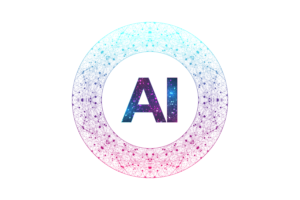
As we’ve traced the history of Microsoft Windows from its inception to the current Windows 11, we can’t help but wonder what the future holds. While there is no official word from Microsoft on the development of a Windows 12, we can speculate on the features and innovations that might be in store, based on current trends and rumors circulating in the tech world.
Enhanced Integration with Cloud Services
As cloud computing continues to gain traction, we can expect future versions of Windows to further integrate with cloud services like OneDrive and Azure. This could enable seamless file syncing, improved collaboration tools, and the ability to run applications and services directly from the cloud, reducing the need for local storage and processing power.
Cross-Platform Compatibility
Microsoft has already taken steps toward increased cross-platform compatibility with the introduction of Android app support in Windows 11. Windows 12 could expand on this, potentially offering seamless integration with other operating systems and devices, such as macOS, iOS, and Linux. This would allow users to effortlessly switch between devices and platforms, making Windows even more versatile and user-friendly.
Virtual and Augmented Reality
As virtual and augmented reality technologies continue to evolve, it’s possible that future versions of Windows will include native support for these immersive experiences. This could include built-in tools for creating and interacting with VR and AR content, as well as support for a wider range of headsets and peripherals.
Improved Security and Privacy
Security and privacy concerns are more relevant than ever, and we can expect Microsoft to continue investing in these areas in future versions of Windows. This could involve implementing more robust encryption methods, advanced biometric authentication, and intelligent threat detection systems to protect users from malware and cyberattacks.
Artificial Intelligence and Machine Learning
The integration of artificial intelligence (AI) and machine learning in operating systems is likely to grow in the coming years. Windows 12 might incorporate advanced AI-driven features, such as more powerful digital assistants, adaptive performance optimization, and intelligent automation of routine tasks to enhance productivity.
Flexible User Interface and Customization
As devices and display technologies evolve, future versions of Windows may offer more flexible and adaptive user interfaces. This could include support for foldable and dual-screen devices, as well as more advanced customization options, allowing users to tailor their Windows experience to their unique preferences and workflow.
While it’s impossible to predict with certainty what Windows 12 might bring, these speculations offer a glimpse into the potential future of the operating system. As technology continues to advance at a rapid pace, we can be sure that Microsoft will strive to remain at the forefront, delivering innovative solutions to meet the ever-changing needs of its users.
The Road Ahead: Further Speculations on Windows 12 and Beyond
In addition to the previously mentioned areas of innovation, there are several other trends and advancements that could shape the future of Windows 12 and subsequent versions. As we continue to speculate on the future of Microsoft Windows, we delve deeper into the realm of possibilities.
Eco-Friendly and Energy Efficient
As sustainability becomes a global priority, we may see future versions of Windows taking steps to reduce their environmental impact. This could include features that optimize energy consumption, reduce electronic waste, and encourage the use of eco-friendly hardware components.
Voice and Gesture Controls
Natural user interfaces are gaining popularity, and future versions of Windows might incorporate more advanced voice and gesture controls. This could enable users to interact with their devices in more intuitive ways, making computing more accessible for people with physical limitations or those who prefer hands-free interaction.
Advanced Networking and Connectivity
The ongoing development of 5G and other high-speed network technologies could lead to new connectivity features in Windows 12. This might include enhanced support for remote work, seamless device pairing, and more efficient data transfer between connected devices.
Edge Computing and IoT Integration
As the Internet of Things (IoT) continues to grow, we can expect future versions of Windows to offer better integration with smart devices and edge computing solutions. This could allow users to control and monitor a wide range of connected devices directly from their Windows environment, as well as leverage edge computing capabilities for improved performance and lower latency.
Personalization and Adaptability
Windows 12 may take personalization and adaptability to new heights, utilizing AI and machine learning to tailor the user experience based on individual preferences and usage patterns. This could involve dynamically adjusting the interface, notifications, and system settings to optimize the computing experience for each user.
AutoML and No-Code Development
The democratization of software development through AutoML and no-code platforms is an ongoing trend that could potentially find its way into future Windows versions. This would enable users with little to no coding experience to create custom applications and tools, broadening the possibilities for innovation and personalization.
While we can only speculate on the specific features and advancements that Windows 12 and future versions might bring, it’s clear that Microsoft will continue to evolve its flagship operating system to meet the changing needs of users and capitalize on emerging technologies. As we look forward to the next chapter in the Windows story, we eagerly await the innovations and surprises that lie ahead.

